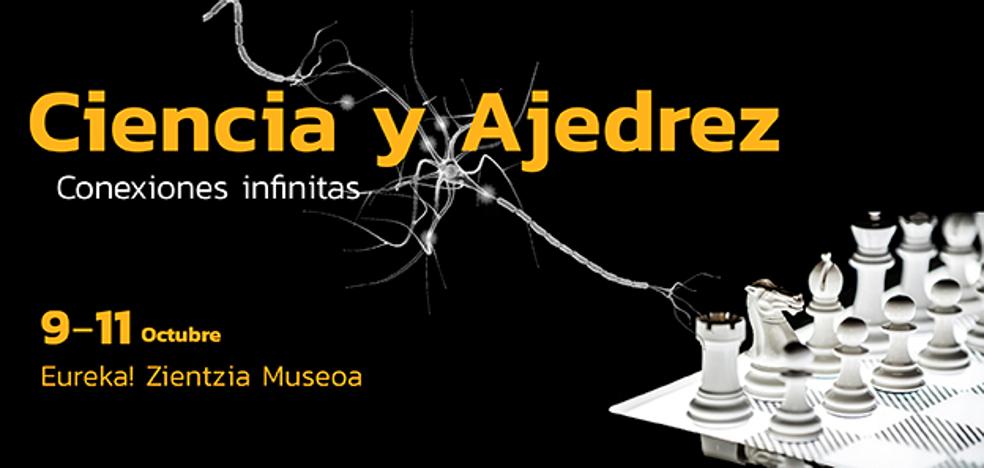Donostia / San Sebastián, September 21, 2021. What is the relationship between chess, next-generation robots, Alzheimer’s and neutrinos? What role do women play in chess? What can literature or photography teach us about this ancient game? Can science be reflected in the 64 squares on the board? These are some of the reflections that will be addressed at the Science and Chess: Infinite Connections meeting, to be held from October 9 to 11, in Eureka! Zientzia Museoa.
This three-day event, organized by the Donostia International Physics Center (DIPC) and Eureka! Zientzia Museoa, will bring together prominent guests from the world of chess, science, photography, literature and education, to reflect on the surprising meeting points between these disciplines.
The round of presentations will begin with the Grand Master Miguel Illescas, eight times champion of Spain, who will talk about his experience as one of the computer scientists recruited by the North American company IBM for the development of the Deep Blue machine, which in 1997 defeated the then champion world chess Gary Kasparov.
Another illustrious chess, International Women’s Grand Master Olga Alexandrova, two-time Spanish women’s champion, will share with the public her personal vision of chess and what it meant in her career to have achieved third place in the 2011 Absolute Spanish Championship. where she was the only woman among 53 participants, in true Lady’s Gambit style.
But not only grandmasters can enjoy and benefit from chess. The prominent journalist Leontxo García will show us that the practice of chess can be a very powerful and inclusive educational tool that, among other things, could help delay brain aging and Alzheimer’s.
Science and chess will shake hands three times. DIPC researcher Ikerbasque Paola Ferrario, an apprentice in the world of chess, will reflect on the unexpected connections that may exist between neutrinos, medicine and chess, from the point of view of a scientist.
The biologist and writer Diego Rasskin, a researcher at the University of Valencia, has been passionate about chess for years. His talk will show us the most scientific facet of this game, with its 10 raised to 120 possible games (a 1 followed by 120 zeros), a figure higher than the number of atoms in the universe. Rasskin will also show us a more poetic side, with the presentation of his latest novel “All the Worlds in the World”, a kind of epic song that recounts the feat of the creation of chess. In addition, Diego Rasskin’s book will be presented by physicist Juan José Gómez-Cadenas, professor Ikerbasque at the DIPC, a chess fan and author of several fiction novels and popular science books.
We jump from literature to art, without losing sight of science, with the photographic exhibition The Thinkers, by the journalist and photographer David Llada, director of communication and marketing of the International Chess Federation. Known among fans as the «chess photographer», Llada suggests another type of connection between chess and science, those that are manifested through a look or a gesture, in faces loaded with expression. In a selection of portraits of chess players from around the world, Llada manages to capture unrepeatable moments of genius, frustration and perseverance, which bring chess closer to scientific thought and, ultimately, to the nature of the human being.
The Thinkers photo exhibition will remain open to the public at Eureka! Zientzia Museoa on the days of the event and every weekend until November 28.
And as a finishing touch to the meeting, the most chess fans will be able to participate in a session of simultaneous games with Grand Master Illescas and Grand Master Alexandrova, as well as in a Blitz Tournament, both organized in collaboration with the Gros Xake chess club. Taldea.
Complete information on the activity program is available here:
www.eurekamuseoa.eus/es/oferta-de-actividades/ciencia-y-ajedrez
All activities are free, but having limited capacity will require prior registration for participation in the different sessions of the event. Registrations can be made on the web
https://www.eurekamuseoa.eus/es/oferta-de-actividades/ciencia-y-ajedrez
The sessions can be followed live at the following address:
www.tiny.cc/CienciayAjedrez





